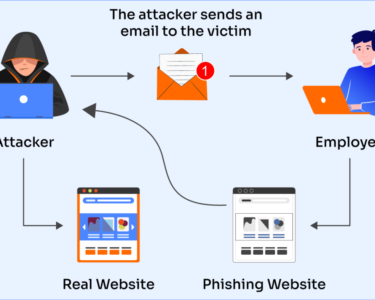
Facing the Unknown in Digital Security
In the rapidly evolving digital landscape, staying secure is paramount. As technology advances, so too do the threats to our online safety. Facing the unknown in digital security requires a proactive and vigilant approach.
Evolving Threats
The threat landscape is constantly shifting, with new malware, phishing scams, and cyberattacks emerging all the time. Traditional security measures are no longer sufficient to protect against these sophisticated threats. It’s crucial to stay informed about the latest vulnerabilities and adopt a layered approach to security.
The Importance of Education
User education is a vital aspect of digital security. Many breaches occur due to human error, such as clicking malicious links or falling for phishing scams. Educating employees, customers, and the public about security best practices can significantly reduce the risk of attacks.
Emerging Technologies
Advances in artificial intelligence (AI), machine learning (ML), and the Internet of Things (IoT) are transforming the security landscape. These technologies can automate threat detection and response, but they also introduce new risks. It’s essential to understand the security implications of emerging technologies and implement appropriate safeguards.
Multi-Factor Authentication
Multi-factor authentication (MFA) adds an extra layer of security by requiring multiple credentials to access sensitive data. This makes it more difficult for attackers to compromise accounts even if they have obtained a password.
Cybersecurity Insurance
Cybersecurity insurance can provide financial protection against the costs associated with a cyberattack, such as data breaches, ransomware payments, and legal expenses. It’s a good idea to consider cybersecurity insurance as part of a comprehensive risk management strategy.
The Role of Cloud Security
With the increasing adoption of cloud computing, securing cloud environments is of utmost importance. Cloud providers offer a range of security services, but it’s the responsibility of organizations to understand their own security requirements and implement appropriate measures.
Remote Work Security
The COVID-19 pandemic has led to a surge in remote work, which introduces new security challenges. Organizations must implement secure remote access solutions, such as virtual private networks (VPNs) and multi-factor authentication, to protect employees accessing company resources from outside the office.
Staying Vigilant
Digital security is an ongoing process that requires constant vigilance. By adopting a proactive and comprehensive approach, organizations and individuals can mitigate the risks and protect their digital assets from the unknown.
Conclusion
Facing the unknown in digital security requires a multi-faceted approach that combines technology, education, and ongoing vigilance. By staying informed about evolving threats, embracing emerging technologies, and implementing robust security measures, we can navigate the digital landscape with confidence and protect our sensitive information.



